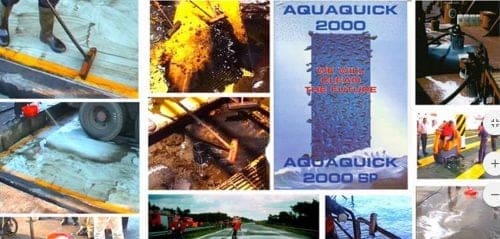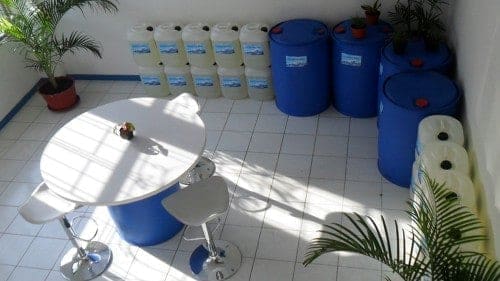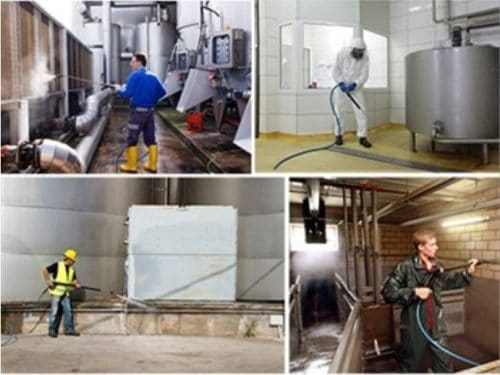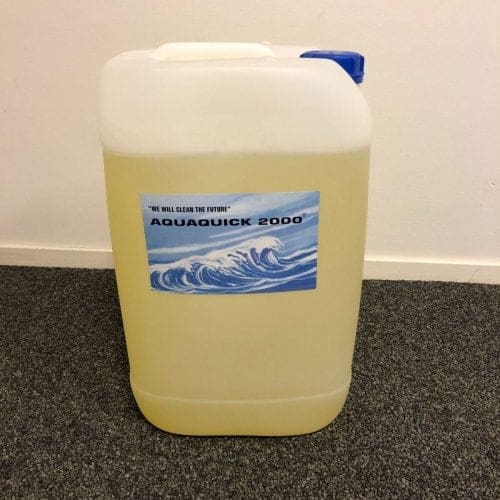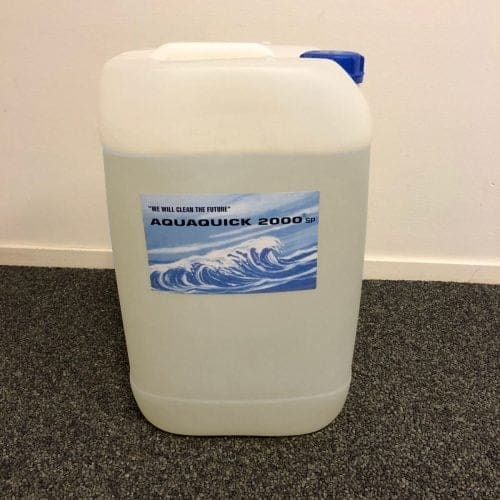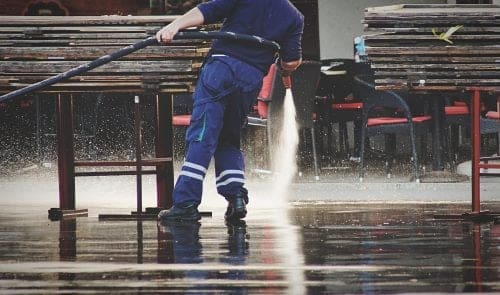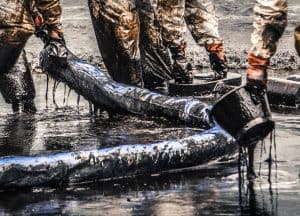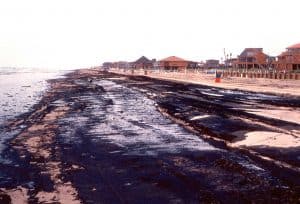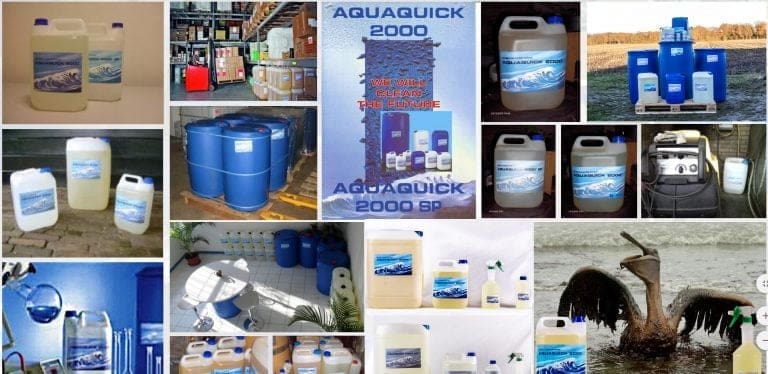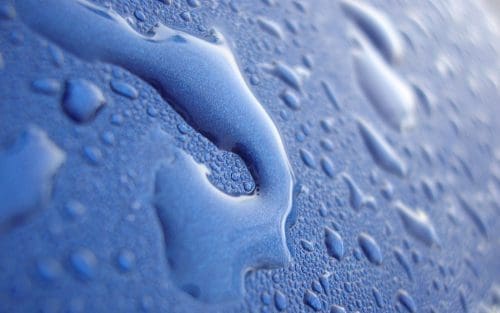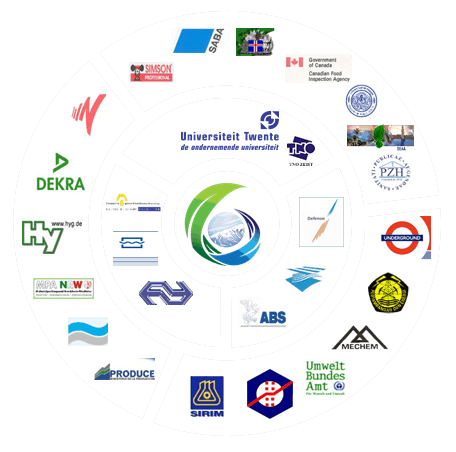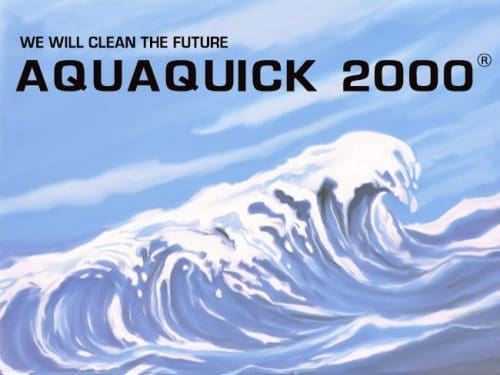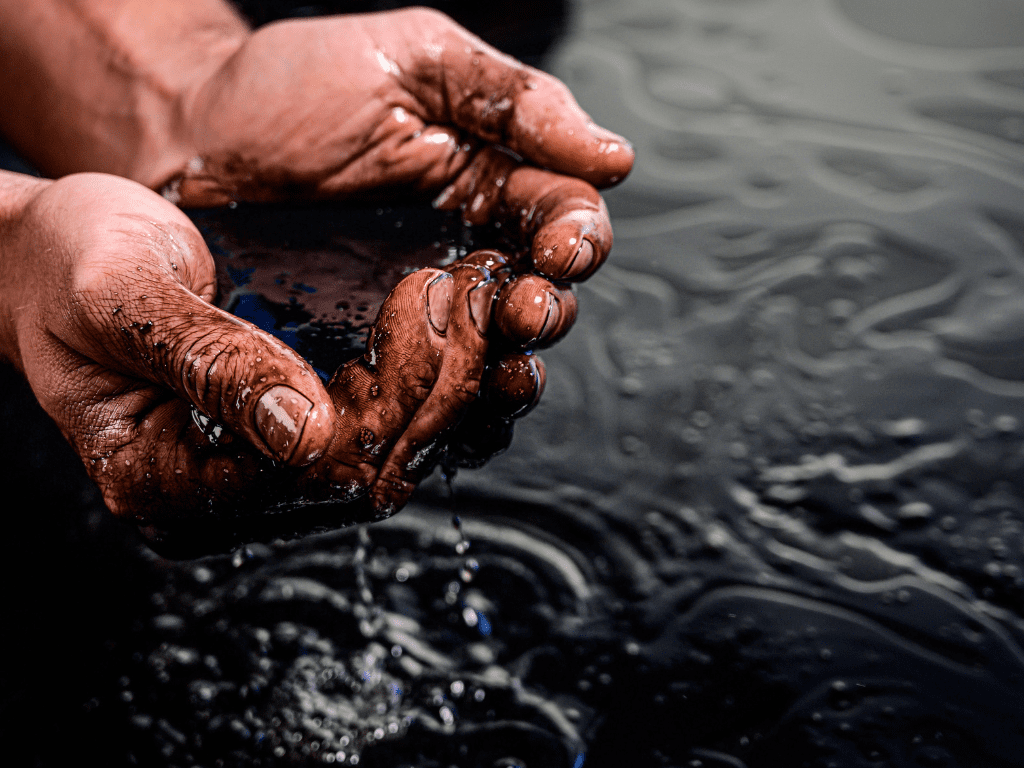Wycieki ropy mogą mieć niszczycielski wpływ na środowisko, życie morskie, a nawet źródła utrzymania ludzi. Zapobieganie wyciekom ropy to nie tylko odpowiedzialność przemysłu, ale wspólny wysiłek, który obejmuje wszystkich, od jednostek po rządy. Wdrażając skuteczne strategie i technologie, możemy zminimalizować ryzyko tych katastrofalnych zdarzeń. W tym artykule omówimy możliwe do podjęcia kroki, jak zapobiegać wyciekom ropy i podkreślimy rolę produktów takich jak AQUAQUICK 2000 w skutecznym zarządzaniu zanieczyszczeniem olejem.
Znaczenie zapobiegania wyciekom ropy naftowej
Odpowiedź na pytanie, jak zapobiegać wyciekom ropy, to nie tylko konieczność środowiskowa; to odpowiedzialność etyczna i ekonomiczna. Wycieki ropy zanieczyszczają drogi wodne, niszczą siedliska i zakłócają ekosystemy. Stanowią one również poważne wyzwanie dla przemysłu, ponieważ proces oczyszczania może być czasochłonny i kosztowny. Zrozumienie powagi problemu może pomóc branżom, rządom i osobom prywatnym w ustaleniu priorytetów w zakresie zapobiegania i podejmowania proaktywnych działań.
Wycieki ropy powodują długotrwałe szkody dla środowiska, szkodząc ekosystemom morskim, obszarom przybrzeżnym i dzikiej przyrodzie. Ponadto usuwanie skutków wycieków ropy może być niezwykle kosztowne, zarówno pod względem finansowym, jak i czasowym. Zapobieganie ma zatem kluczowe znaczenie nie tylko dla ochrony naszej planety, ale także dla zmniejszenia wydatków i wysiłku wymaganego do oczyszczenia. Koncentrując się na środkach zapobiegawczych, możemy ograniczyć ryzyko, zanim przerodzi się ono w katastrofę ekologiczną.
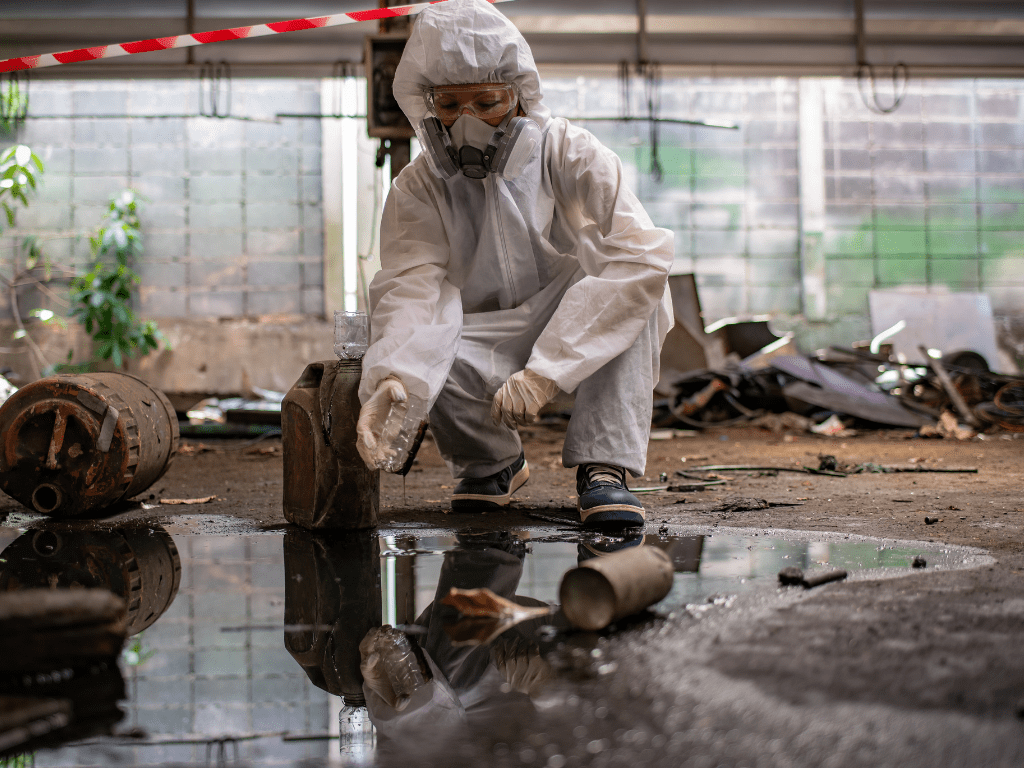
Najlepsze praktyki zapobiegania wyciekom ropy
Wdrażanie najlepszych praktyk w zakresie zapobiegania wyciekom ropy jest kamieniem węgielnym ochrony środowiska i zrównoważonej działalności. Od rutynowej konserwacji po przyjęcie najnowocześniejszych technologii, podjęcie kroków zapobiegawczych może skutecznie złagodzić ryzyko. Branże, które koncentrują się na tych praktykach, nie tylko chronią swoją działalność, ale także pozytywnie wpływają na równowagę ekologiczną.
Regularna konserwacja sprzętu
Konserwacja sprzętu, niezależnie od tego, czy znajduje się on na statku morskim, platformie wiertniczej czy w zakładzie przemysłowym, jest jednym z najskuteczniejszych sposobów zapobiegania wyciekom ropy. Regularne kontrole zapewniają, że zbiorniki, rurociągi i maszyny są w optymalnym stanie technicznym. Wczesna identyfikacja i naprawa wycieków lub korozji może uchronić tysiące galonów ropy przed zmarnowaniem lub rozlaniem. Prowadzenie szczegółowego dziennika konserwacji może również pomóc w śledzeniu potencjalnych problemów, zanim przerodzą się one w poważne problemy.
Właściwe przechowywanie i obchodzenie się z olejem
Olej musi być przechowywany w pojemnikach, które są trwałe, szczelne i spełniają branżowe normy bezpieczeństwa. Właściwe oznakowanie i przechowywanie z dala od źródeł ciepła może zapobiec przypadkowym wyciekom. Podczas obsługi należy zawsze używać odpowiednich narzędzi i sprzętu, aby zminimalizować ryzyko wycieków. Dla firm szkolenie pracowników w zakresie bezpiecznego obchodzenia się z olejem jest kluczowym krokiem w zapobieganiu wyciekom.
Wykorzystanie zaawansowanej technologii
Zaawansowana technologia odgrywa znaczącą rolę w zapobieganiu wyciekom ropy. Nowoczesne tankowce są na przykład wyposażone w podwójne kadłuby, które zapewniają dodatkową warstwę ochrony. Zautomatyzowane systemy mogą monitorować poziomy ciśnienia i wcześnie wykrywać wycieki. Ponadto stosowanie materiałów pochłaniających olej i wysięgników zapobiegających wyciekom jako części zestawu awaryjnego zapewnia szybką reakcję na drobne wycieki, zanim się rozprzestrzenią.
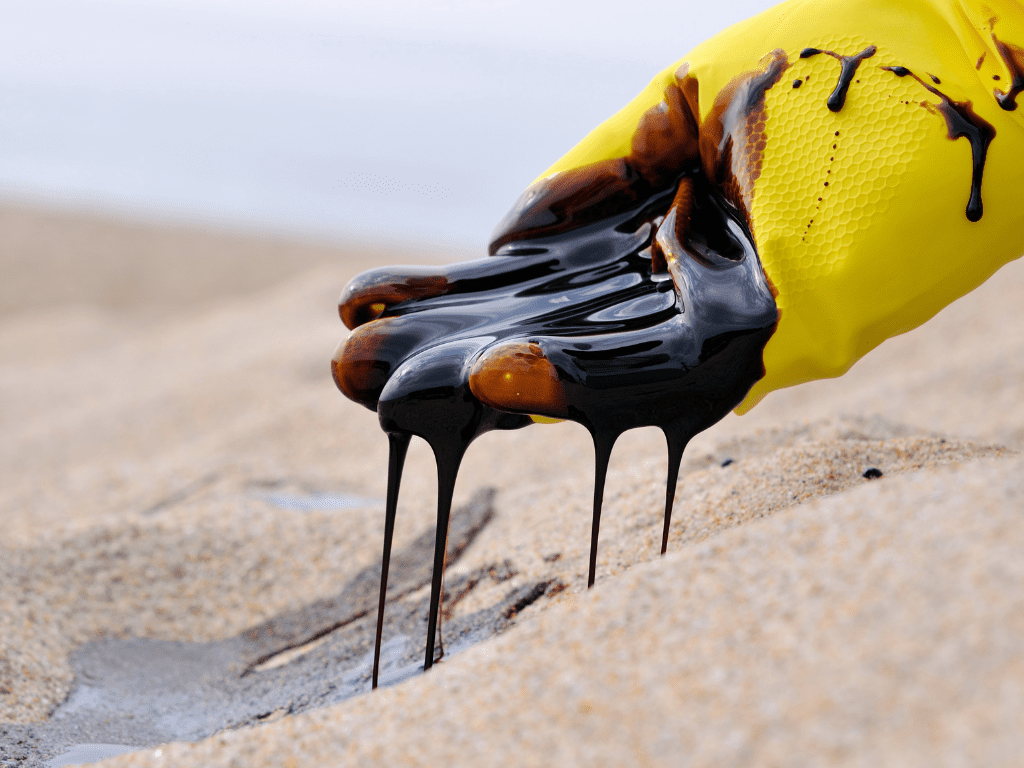
Rola regulacji środowiskowych i zgodności z przepisami
Zgodność z przepisami dotyczącymi ochrony środowiska ma kluczowe znaczenie dla zminimalizowania ryzyka wycieków ropy. Przepisy te mają na celu egzekwowanie standardów bezpieczeństwa, ograniczanie zaniedbań i zachęcanie firm do odpowiedzialności. Przestrzegając tych zasad, branże mogą zapewnić bezpieczniejsze operacje, jednocześnie unikając kar prawnych i szkód dla środowiska.
Przestrzeganie przepisów dotyczących ochrony środowiska
Rządy i organy międzynarodowe ustanowiły surowe przepisy w celu zminimalizowania ryzyka wycieków ropy. Firmy zajmujące się transportem lub magazynowaniem ropy naftowej muszą przestrzegać tych przepisów, w tym regularnych audytów i raportowania. Naruszenia mogą skutkować wysokimi grzywnami i zawieszeniem działalności, co sprawia, że zgodność z przepisami jest kluczowym elementem każdej działalności związanej z ropą naftową.
Prowadzenie szkoleń i ćwiczeń
Gotowość na wypadek awarii jest niezbędna, aby wiedzieć, jak zapobiegać wyciekom oleju. Firmy powinny przeprowadzać regularne sesje szkoleniowe i próbne ćwiczenia, aby upewnić się, że pracownicy wiedzą, jak reagować na potencjalne wycieki. Ćwicząc procedury ograniczania i oczyszczania, organizacje mogą działać szybko i skutecznie podczas rzeczywistego zdarzenia, minimalizując szkody dla środowiska.

Rola AQUAQUICK 2000 w Zapobieganie wyciekom ropy
Zapobieganie wyciekom oleju wymaga połączenia proaktywnych środków i niezawodnych rozwiązań do zarządzania wyciekami. AQUAQUICK 2000 jest jednym z takich produktów, który wypełnia lukę między zapobieganiem a usuwaniem wycieków. Jest to przyjazne dla środowiska, biodegradowalne rozwiązanie, które jest zgodne z nowoczesnymi standardami ochrony środowiska. Jego wszechstronność sprawia, że jest istotną częścią każdej strategii zapobiegania wyciekom oleju, zapewniając minimalne szkody dla środowiska w przypadku wycieków lub rozlewów.
AQUAQUICK 2000 to innowacyjne i przyjazne dla środowiska rozwiązanie przeznaczone do skutecznego usuwania wycieków oleju. Chociaż zapobieganie jest głównym celem, posiadanie niezawodnego produktu do zarządzania wyciekami oleju jest niezbędne. AQUAQUICK 2000 może być stosowany w przypadku niewielkich wycieków lub rozlewów, zapewniając, że olej nie rozprzestrzeni się dalej do środowiska. Jego biodegradowalna formuła sprawia, że jest bezpieczny do stosowania w środowisku morskim i przemysłowym, zgodnie z normami ochrony środowiska. Włączenie takich rozwiązań do zestawów gotowości awaryjnej może znacznie zwiększyć wysiłki w zakresie zarządzania wyciekami oleju.
Jak zapobiegać wyciekom ropy - promowanie świadomości społecznej

Wiedza o tym, jak zapobiegać wyciekom ropy ma kluczowe znaczenie zarówno dla przemysłu, jak i osób prywatnych, ponieważ zapobieganie nie tylko chroni środowisko, ale także zmniejsza ryzyko finansowe i reputacyjne. Świadomość społeczna jest istotnym filarem w walce z wyciekami ropy. Edukowanie osób, firm i społeczności na temat zagrożeń związanych z wyciekami ropy może zainspirować do podjęcia wspólnych działań. Niezależnie od tego, czy chodzi o warsztaty, kampanie społeczne czy wydarzenia społecznościowe, szerzenie wiedzy zapewnia, że każdy odgrywa rolę w zapobieganiu.
Kampanie edukacyjne
Podnoszenie świadomości na temat skutków wycieków ropy i środków zapobiegawczych ma kluczowe znaczenie. Rządy, organizacje pozarządowe i branże mogą organizować warsztaty, seminaria i kampanie mające na celu edukowanie społeczeństwa i zainteresowanych stron na temat zagrożeń związanych z wyciekami ropy i strategii zapobiegania im. Wiedza umożliwia społecznościom podejmowanie proaktywnych kroków w celu ograniczenia wycieków ropy.
Zachęcanie społeczności do uczestnictwa
Społeczności mieszkające w pobliżu obszarów przybrzeżnych lub obiektów przemysłowych mogą odgrywać rolę w zapobieganiu wyciekom ropy. Zgłaszanie podejrzanych działań, wycieków lub niewłaściwych praktyk przechowywania może pomóc władzom w rozwiązywaniu problemów przed ich eskalacją. Współpraca między przemysłem a lokalnymi społecznościami sprzyja poczuciu wspólnej odpowiedzialności.
Innowacje w zapobieganiu wyciekom ropy naftowej
Postępy w technologii i projektowaniu znacznie zmniejszyły ryzyko związane z wyciekami ropy. Nowoczesne innowacje, takie jak produkty biodegradowalne, ulepszone konstrukcje zbiorników i zautomatyzowane systemy monitorowania, torują drogę do bezpieczniejszych operacji przemysłowych. Zmiany te odzwierciedlają rosnące zaangażowanie w ochronę środowiska przy jednoczesnym zachowaniu wydajności.
Rozwój Biodegradowalny Produkty
Wprowadzenie biodegradowalnych produktów, takich jak AQUAQUICK 2000, pokazuje, w jaki sposób innowacje mogą pomóc w zrównoważonym zarządzaniu wyciekami oleju. Takie produkty nie tylko zapobiegają skażeniu olejem, ale także zmniejszają wpływ działań porządkowych na środowisko. Zachęcanie do stosowania ekologicznych rozwiązań w przemyśle może utorować drogę do bezpieczniejszych praktyk.
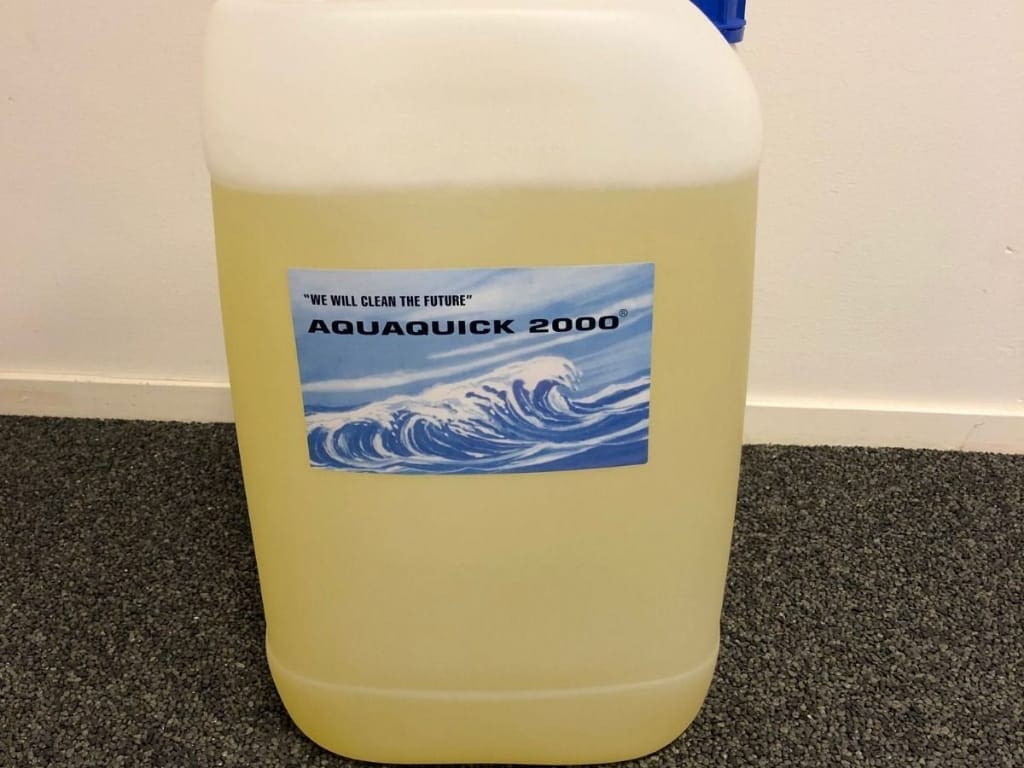
Ulepszona konstrukcja statku
Nowoczesne statki i tankowce są projektowane z zaawansowanymi funkcjami, takimi jak podwójne kadłuby, ulepszone systemy nawigacji i automatyczne wykrywanie wycieków. Innowacje te minimalizują ryzyko wycieków ropy spowodowanych błędem ludzkim lub awarią sprzętu.
Wnioski
Zapobieganie wyciekom oleju wymaga wieloaspektowego podejścia, które obejmuje regularną konserwację, właściwe przechowywanie, zgodność z przepisami dotyczącymi ochrony środowiska i świadomość społeczną. Przyjmując te strategie i wykorzystując innowacyjne produkty, takie jak AQUAQUICK 2000, możemy znacznie zmniejszyć ryzyko wycieków oleju i chronić nasze środowisko. Zapobieganie to nie tylko opcja; to konieczność dla zrównoważonej przyszłości. Razem możemy coś zmienić, nadając priorytet środkom zapobiegawczym i stosując ekologiczne rozwiązania.

